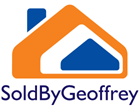My advice to anyone wishing to sell or purchase real estate in the near future is, GET PRE-APPROVED FOR A MORTGAGE.
Lending standards and programs change daily. It is critical to establish as early as possible what you can comfortably afford when purchasing a home. Aim to spend no more that 25% - 33% of your monthly earnings on a mortgage payment. Compare at least 2 lenders when shopping for a mortgage. Your Realtor can recommend lenders or you can choose to work with whomever you like. Pick up the phone and give them a call or fill out their online mortgage application if they have one. If you belong to a credit union give them a call as well, as they may have special deals for their customers. Other important things to consider when getting your Pre-Approval:
- Down Payment:
The larger your down payment the better. Conventional loans usually require 10% - 20% down where an FHA loan requires as little as 3.5% down, and if you qualify for a VA loan you may not need a down payment.
- Closing Cost:
What is your lender charging you? What are the government fees in the county you are purchasing in? Ask any lender you apply with for a "Good Faith Estimate" that outlines your cost. Plan on spending an additional 2% - 3% on closing cost on top of the sale price.
- Annual Property Taxes:
Check your county's public records online for tax rates and assessments, but taxes vary and cost about 1% of the assessed value.
- Homeowners Insurance:
$50 - $100 a month covers the home and its belongings.
- HOA/Condo Association Fees:
These fees vary.
What you need when applying for a mortgage:
- Pay stubs and W2s (lenders are looking for income verification for two years)
- Bank Statements (two or three months)
- Self-employed applicants must provide 2 years of tax returns
The pre-approval process is painless and usually takes no more than 24 hours. Make sure to get a "Pre-Approval Letter" from the lender so you are ready when it's time to make an offer.
Helpful online tools:
Affordability Calculator
Mortgage Calculator
FHA Mortgage Calculator
FREE Annual Credit Report
Common Mortgage Types:
Conventional vs. Government
With conventional loans, a private lender assumes the risk of losing money if you default on your mortgage. With a government loan, this risk is absorbed by a government agency.
Conforming vs. Non-conforming
Conforming mortgages "conform" to the rules set out by Fannie Mae and Freddie Mac, which often buy mortgages from lenders as investments. Non-conforming loans do not follow these guidelines, meaning that lenders must find other investors with a higher tolerance for risk. Since it's harder to sell these loans, lenders offset their own risk by charging more for them. Jumbo loans are one well-known type of non-conforming loan.
Fixed vs. Adjustable Rate
Fixed-Rate mortgages have the same interest rate for the entire life of the loan. Adjustable rate mortgages (ARMs) have interest rates that can change throughout the life of the loan.
SoldbyGeoffrey.com
_________________________________________________________________________________
Determined, Competent and Caring Representation
